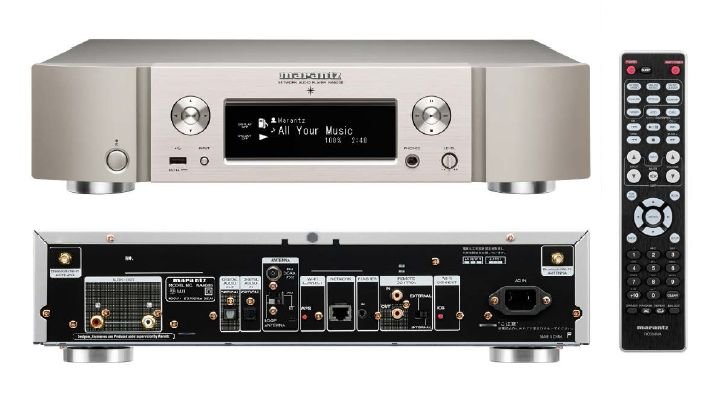Executive, Corporate, and Business Coaching: Pricing, Hourly Rates, and What You Need to Know
Introduction
In today’s dynamic business environment, executive coaching has emerged as a powerful tool for leaders striving to enhance their performance, achieve career goals, and drive organizational success. Whether you’re a seasoned executive or an emerging leader, the right coaching can provide the clarity, direction, and skills needed to excel in your role. But with various executive coaching objectives and methodologies available, how do you determine the right fit for your needs?
In this comprehensive guide, we’ll delve into the essential aspects of executive coaching, including the costs involved, pricing models, and the value it brings to individuals and organizations alike. We will explore common questions such as “How much does executive coaching cost?” and “What should you expect to pay for an executive coach?” to help you navigate the financial aspects of coaching. We’ll also discuss how to choose the right coach, understanding their expertise, and setting up a successful coaching engagement.
Whether you are considering business coaching rates or trying to understand executive coaching pricing, this guide is designed to provide clear, actionable insights to help you make an informed decision. We’ll cover the key factors that influence coaching costs and offer practical advice on how to select a coach who aligns with your goals. By the end, you’ll have a solid understanding of the value of executive coaching, how it can benefit you or your organization, and how to maximize the return on your investment. Stay with us to discover how effective coaching can transform your professional journey and achieve remarkable results.
Top 5 Best Executive Coaches
1-Marshall Goldsmith
Specialization: Leadership development, behavior change.
Notable Achievements: Marshall Goldsmith is a world-renowned executive coach and author of bestsellers like “What Got You Here Won’t Get You There.” He has coached numerous CEOs and top executives globally, known for his practical approach to behavioral change and leadership development.
2-Tony Robbins
Specialization: Personal development, business growth, peak performance.
Notable Achievements: Tony Robbins is a renowned life and business strategist, with a focus on unleashing personal and professional potential. His coaching sessions, seminars, and books, such as “Awaken the Giant Within,” have impacted millions, driving growth and transformation.
3-Brené Brown
Specialization: Leadership, vulnerability, courage.
Notable Achievements: Brené Brown is an expert in leadership and personal development, famous for her research on vulnerability and courage. Her books, including “Dare to Lead,” provide valuable insights into fostering authentic leadership and building resilient teams.
4-Samantha Power
Specialization: Leadership, conflict resolution, diplomacy.
Notable Achievements: Samantha Power is a former U.S. Ambassador to the United Nations and a professor at Harvard University. Her coaching focuses on leadership and navigating complex global issues, drawing on her extensive experience in diplomacy and international relations.
5-Robin Sharma
Specialization: Leadership, personal mastery, productivity.
Notable Achievements: Robin Sharma is a leadership expert and author of “The Monk Who Sold His Ferrari.” He is known for his work in personal mastery and productivity, helping leaders achieve extraordinary results and enhance their professional and personal lives.
1. Understanding Executive Coaching and Its Value
Executive coaching is a professional development process designed to help executives enhance their leadership abilities and achieve their executive coaching goals. It involves a personalized approach where a coach works closely with an executive to address specific challenges, improve performance, and develop strategic thinking. The primary executive coaching objectives include increasing self-awareness, refining leadership skills, and fostering better decision-making. Effective coaching can lead to significant improvements in both personal and organizational performance by providing tailored guidance and support.
The value of executive coaching lies in its ability to offer customized solutions that align with an executive’s goals of executive coaching. By focusing on individual strengths and areas for improvement, coaching helps leaders develop strategies to overcome obstacles and drive success. Investing in executive coaching is not just about addressing immediate issues but also about fostering long-term growth and development. This personalized approach ensures that coaching is aligned with the specific needs and objectives of the individual, making it a valuable investment for leadership development.
2. How Much Does Executive Coaching Cost?
In 2024, how much does executive coaching cost can vary significantly based on factors such as the coach’s experience, reputation, and the complexity of the engagement. On average, executive coaching prices range from $200 to $650 per hour. This range reflects differences in coaching methodologies, the level of expertise offered, and the nature of the coaching relationship. Some coaches may offer packages or retainer agreements that can alter the overall cost, providing flexibility for clients to choose a plan that fits their budget and needs.
Understanding how much is executive coaching involves more than just knowing the hourly rate. Costs can also be influenced by the length and format of the coaching engagement. For example, a short-term coaching package might be priced differently from a long-term, comprehensive program. Evaluating the costs against the potential benefits of the coaching experience is crucial for making an informed decision. By comparing various options, you can find a coaching solution that aligns with your budget and delivers value.
3. Factors Influencing Executive Coaching Pricing
Several factors influence executive coaching pricing, including the coach’s experience, the complexity of the coaching process, and the scope of the engagement. Highly experienced coaches or those specializing in niche areas often command higher fees. Additionally, the depth of the coaching required—such as addressing intricate leadership challenges or managing significant organizational changes—can impact pricing. Understanding these factors helps in assessing how much do executive coaches charge and selecting a coach who offers the right balance of cost and expertise.
The overall cost of executive coaching is also affected by the additional services provided, such as access to assessments, supplementary resources, or ongoing support. Coaches who offer comprehensive packages or include extra elements in their services may have higher fees. It’s important to consider these elements when evaluating executive coaching costs to ensure that you are receiving a service that meets your needs and provides value for the investment.
4. Typical Rates for Executive Coaching Services
Business coaching rates in 2024 typically range from $200 to $500 per hour, though this can vary depending on several factors. Rates might be higher for coaches with extensive experience or specialized expertise, particularly for senior-level executives or high-stakes situations. Some coaches may offer fixed-rate packages that include multiple sessions or a specific program, which can provide a more predictable cost structure compared to hourly rates. Understanding these executive coaching rates helps in budgeting and selecting a coach who aligns with your needs and financial considerations.
When evaluating how much is an executive coach, it’s important to consider the full scope of the services provided. While hourly rates give an idea of the cost, the overall investment might also include additional resources, support, and tools. Comparing different coaching options and their associated costs allows you to make a more informed decision about the best coaching solution for your needs. This comparison helps in finding a coach who delivers value while fitting within your budget.
5. Corporate Coaching Companies and Their Services
Corporate coaching companies offer a range of services designed to meet organizational needs, from individual executive coaching to team development and leadership training. These companies often provide tailored solutions that address specific challenges faced by organizations, such as improving team dynamics, enhancing leadership skills, or driving strategic initiatives. By working with these companies, organizations can benefit from a structured approach to coaching that aligns with their overall business objectives.
Selecting the right corporate coaching company involves understanding their services and how they align with your executive coaching goals. These companies may offer various formats, including one-on-one coaching, group sessions, and workshops. It’s important to choose a provider that offers the services and expertise required to support your leadership development initiatives. Evaluating the track record and client feedback of these companies can also help in making a well-informed decision.
6. Types of Executive Coaching Packages
Executive coaching packages can vary widely, from hourly sessions to more comprehensive, long-term engagements. Some coaches offer retainer agreements that provide ongoing support and flexibility, while others might offer fixed-term packages that include a set number of sessions. Understanding the different types of packages available helps in selecting the option that best fits your needs and goals. It’s important to evaluate what’s included in each package, such as session frequency, support between sessions, and any additional resources provided.
When choosing a coaching package, consider how it aligns with your specific executive coaching goals and budget. Longer-term engagements might offer a lower per-session rate and provide more value over time, while shorter-term packages can be useful for addressing immediate challenges. By comparing various packages and their offerings, you can find a coaching solution that delivers the support needed to achieve your objectives effectively.
7. Comparing Executive Coaching Costs and Benefits
When comparing executive coaching services, it’s essential to weigh the costs against the potential benefits. Higher rates may be justified by a coach’s extensive experience, specialized expertise, or the comprehensive nature of their services. Evaluating the overall value of the coaching experience involves considering how well the coach’s services align with your executive coaching objectives and the potential impact on your personal and professional development.
Assessing the benefits of coaching in relation to its costs helps in making a well-informed decision. Consider factors such as the coach’s track record, the specific outcomes achieved, and any additional resources or support provided. This evaluation ensures that you are investing in coaching that not only fits your budget but also delivers significant value and supports your long-term goals.
8. How to Evaluate Executive Coaches
Selecting the right executive coach involves assessing their experience, approach, and fit with your executive coaching objectives. Start by researching potential coaches and considering their background, certifications, and client feedback. A coach’s methodology and style should align with your needs and preferences. Many coaches offer consultations where you can discuss your goals and evaluate how well their approach matches your expectations.
It’s also important to seek references or testimonials from past clients to gain insights into the coach’s effectiveness and style. Evaluating how well a coach’s services align with your executive coaching goals and how comfortable you feel working with them can help in making the best choice. This process ensures that you select a coach who can provide the support and guidance needed to achieve your objectives.
9. How to Choose the Right Executive Coach
Choosing the right executive coach involves several key steps to ensure that the coach aligns with your executive coaching goals and can effectively support your development. Start by identifying your specific needs and objectives for coaching. Research potential coaches, considering their experience, expertise, and client feedback. Look for a coach whose approach and style resonate with your preferences and who can provide the support required to achieve your goals.
Consider scheduling consultations with potential coaches to discuss your objectives and assess their fit. A good coach will be able to articulate how their services align with your needs and provide examples of past successes. By evaluating their qualifications, approach, and compatibility with your goals, you can make an informed decision about the best coach for your needs. This careful selection process ensures that you invest in a coaching relationship that will support your growth and development.
10. Summary: Making the Right Investment in Executive Coaching
In summary, investing in executive coaching can provide substantial benefits for both individuals and organizations. Effective coaching helps executives enhance their leadership skills, improve decision-making, and achieve their executive coaching goals. It offers tailored support that addresses specific challenges and drives personal and professional growth. For corporate companies, investing in coaching can lead to improved leadership, better team performance, and overall organizational success.
The decision to invest in executive coaching should be based on a thorough understanding of how much executive coaching costs and the value provided. By choosing the right coach and package, organizations and individuals can maximize the benefits of coaching and achieve their development objectives. Effective coaching not only supports immediate needs but also fosters long-term growth and success, making it a valuable investment in leadership and organizational development.
Frequently Asked Questions About Executive Coaching
1. What does executive coaching cost per hour?
The cost of executive coaching per hour can vary widely, typically ranging from $200 to $650. The rate depends on factors such as the coach’s experience, expertise, and the complexity of the coaching engagement. For a more accurate estimate, it’s important to discuss your specific needs and goals with potential coaches, as they may offer customized pricing based on your requirements.
2. What is the pricing model for executive coaching?
Executive coaching pricing can follow several models, including hourly rates, fixed-term packages, or retainer agreements. Hourly rates provide flexibility, while packages often include a set number of sessions and may offer a lower per-session cost. Retainer agreements offer ongoing support and are ideal for long-term coaching relationships. Understanding these models helps in selecting the right option for your needs and budget.
3. How much is coaching per hour?
The hourly rate for coaching generally ranges from $200 to $500, though it can be higher for highly experienced coaches or those with specialized expertise. Rates may vary based on the coach’s reputation, the depth of the engagement, and any additional services provided. It’s important to consider the overall value and alignment with your executive coaching goals when evaluating hourly rates.

4. What to charge for business coaching?
The fees for business coaching can vary based on several factors, including the coach’s experience and the nature of the engagement. Typically, business coaching rates are in the range of $200 to $500 per hour. Some coaches may offer package deals or retainer agreements, which can provide a more predictable cost structure. It’s important to determine the scope of the coaching and how it aligns with your objectives to set an appropriate fee.
5. How might you work together on what you just described?
When working with an executive coach, the process usually begins with an initial assessment to identify your executive coaching objectives and goals. The coach will then create a customized plan that outlines the areas to focus on and the strategies to be used. Regular sessions and ongoing feedback ensure that the coaching process is tailored to your specific needs and helps in achieving desired outcomes.
6. What type of clients have they worked with in the past and what results did they see?
Understanding the coaching experience of a potential coach can provide insight into their effectiveness. Ask about the types of clients they have worked with, particularly those in similar industries or facing comparable challenges. Inquire about the results achieved through their coaching, such as improved leadership skills, enhanced team performance, or successful career transitions, to gauge their suitability for your needs.
7. What areas do they specialize in?
Coaches often have specific areas of specialization, such as leadership development, executive presence, or strategic planning. Identifying the specializations of a potential coach helps ensure that their expertise aligns with your executive coaching goals. Discussing their areas of focus can help you determine if they are the right fit for addressing your particular needs.
8. What kinds of coaching engagements do they offer?
Coaches offer various types of engagements, including one-on-one sessions, group coaching, and workshops. Each format has its advantages, such as personalized attention in one-on-one sessions or collaborative learning in group settings. Understanding the types of engagements offered helps in selecting the format that best suits your needs and objectives.
9. What is their recommendation for setting up an engagement with you?
A good coach will provide recommendations on how to structure the engagement based on your goals and preferences. This might include defining the coaching objectives, setting a schedule for sessions, and establishing metrics for success. Discussing these recommendations helps ensure that the coaching process is well-organized and aligned with your needs.
10. Does this sound like a “one size fits all” approach or specific to what you need?
Effective executive coaching should be tailored to your specific needs rather than a generic approach. A customized coaching plan considers your unique challenges, goals, and preferences, ensuring that the coaching is relevant and impactful. Evaluate whether the proposed coaching approach is personalized and designed to address your individual objectives.
11. What commitment do they need from you?
Coaching requires a commitment from both the coach and the client. This includes dedicating time for sessions, being open to feedback, and actively participating in the process. The coach may also require commitment in terms of setting goals, completing assignments, or engaging in follow-up activities. Understanding these expectations helps in preparing for a successful coaching relationship.






